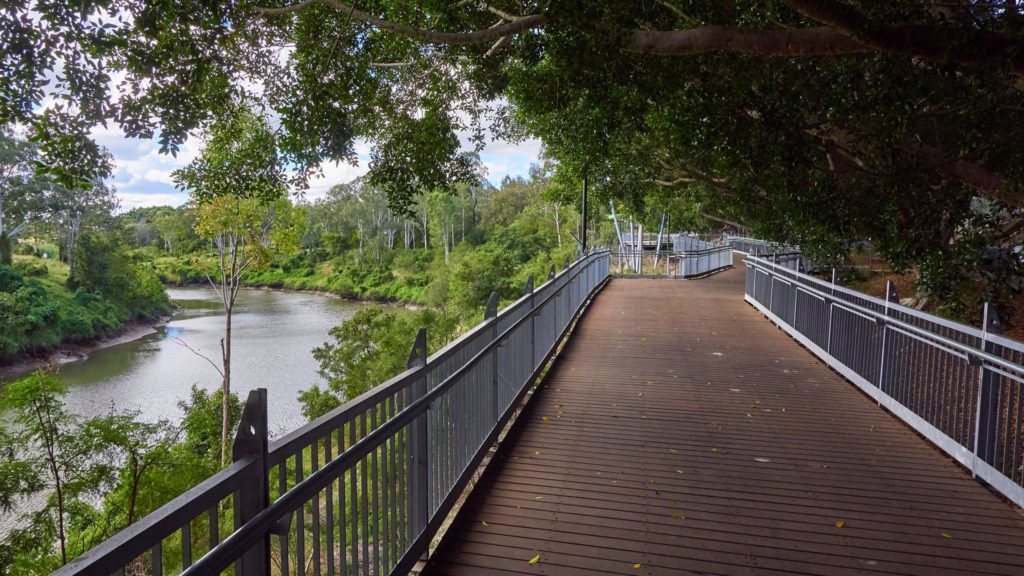Bremer River

The Bremer River is a tributary of the Brisbane River and is situated in South East Queensland, Australia’s Scenic Rim and Brisbane districts. The river weaves its way through the landscape, serving as more than just a waterway. Beyond its natural beauty and ecological significance, the Bremer River holds deep cultural importance for the communities that have called its banks home for generations. In this comprehensive exploration, we delve into the multifaceted reasons why the Bremer is a cultural treasure, cherished by Indigenous peoples, settlers, and modern-day residents alike.
Indigenous Heritage: A Sacred Connection
For thousands of years, the Bremer River has been woven into the cultural fabric of the Indigenous peoples who first inhabited the region. For the Jagera and Ugarapul peoples, the river holds deep spiritual significance, serving as a source of sustenance, ceremony, and storytelling.
The Bremer is intertwined with Dreamtime stories and creation myths, passed down through generations as a testament to the enduring connection between the land, water, and Indigenous peoples. Sacred sites, rock art, and cultural practices along the riverbanks bear witness to the rich cultural heritage of the traditional custodians of the Bremer.
European Settlement: Foundations of Heritage
With the arrival of European settlers in the 19th century, the cultural importance of the Bremer expanded to encompass new traditions, industries, and ways of life. European pioneers, drawn by the promise of fertile land and economic opportunity, established homesteads, farms, and towns along the riverbanks, shaping the cultural landscape of the region.
The Bremer River became a lifeline for early settlers, providing water for drinking, irrigation, and transportation, as well as a source of recreation and leisure. Historic buildings, bridges, and landmarks along the river stand as tangible reminders of the cultural heritage left by European settlers, preserving their legacy for future generations.
Modern-Day Significance: Connecting Communities
Today, the cultural importance of the Bremer River continues to evolve, serving as a unifying force that connects communities and fosters a sense of belonging. From cultural festivals and events to recreational activities and community gatherings, the river serves as a focal point for social interaction, celebration, and reflection.
Indigenous cultural practices and traditions are celebrated and honored along the banks of the Bremer, with events such as NAIDOC Week and Sorry Day providing opportunities for reconciliation, education, and cultural exchange. Similarly, multicultural festivals and initiatives promote diversity and inclusion, highlighting the role of the Bremer River as a shared cultural heritage.
Environmental Stewardship: Preserving Cultural Values
In addition to its cultural significance, the Bremer River plays a vital role in environmental stewardship and conservation efforts. Indigenous land management practices, traditional ecological knowledge, and modern conservation techniques are combined to ensure the health and vitality of the river and its surrounding ecosystems.
Community-led initiatives such as riparian restoration projects, water quality monitoring programs, and cultural heritage preservation efforts demonstrate the commitment of local residents to preserving the cultural values of the Bremer. By safeguarding the river’s natural and cultural heritage, communities ensure that its significance endures for future generations to enjoy and cherish.
Conclusion:
The Bremer River is more than just a waterway – it is a cultural treasure that embodies the rich tapestry of Queensland’s history, heritage, and identity. From its sacred significance to Indigenous peoples to its role in shaping the traditions of European settlers and modern-day communities, the river serves as a living testament to the enduring connection between people and place.
As we reflect on the cultural importance of the Bremer, we are reminded of the need to preserve and protect its natural and cultural heritage for future generations. By honoring the traditions of the past, celebrating the diversity of the present, and embracing the stewardship of the future, we ensure that the Bremer remains a cherished cultural icon for all who call it home.
Know More about the Bremer River.
What are The Religious Places of the Bremer River?
When Did The Bremer River Basin Become a Focus?
Where is The Bremer River Located?
Who Were The Key Historical Figures and Civilizations of The Bremer River?
How to Reach Bremer River?




